Summer is the season when we spend quite a lot of time outdoors and of course, every citizen tries to get out of the city labyrinth and spend a few days in the wild, enjoying nature and relaxing.
However, even though summer camping is way simpler than its winter alternative due to much more convenient weather conditions, there are still certain nuances. One of them is how to cool a tent without electricity.
If keeping a cool tent in summer is also a problem for you, read this article. You will find out several ways that can become helpful should you travel and/or camp without access to electricity to use fans or an air conditioner.
Also, we will explain why using a tent in summer is often troublesome in terms of keeping it properly cooled, and you will find out how you can cool yourself down on a blazing summer day.
With all the tips and life hacks we are going to share with you, it will be very easy for everyone to stay cool in a tent when camping.
How to Keep a Tent Cool While Camping In Summer?
In order to find out how you could keep your tent cool during summer camping, you need to understand first how tents and warm weather interact.
If you are an experienced camper, you know that tents get very hot quite quickly. It happens for a few reasons, but one of the biggest problems is ventilation.
If you have a tent with no screening, it becomes a hot box any time you are camping in warm weather. If there is no way for air to circulate, the tent will become unbearably warm, especially when you and other people are inside of it, generating heat.
Another reason why ventilation is so important is because of moisture. You probably know that dry heat (like in a desert) is far more comfortable than wet heat (like in a tropical forest).
This is why the dryer you keep your tent inside the more bearable the higher outside temperatures will be for you to deal with.
Below, you can find a list of several best ways to cool a tent on a hot summer day. Read attentively and decide which one might be more suitable for you.
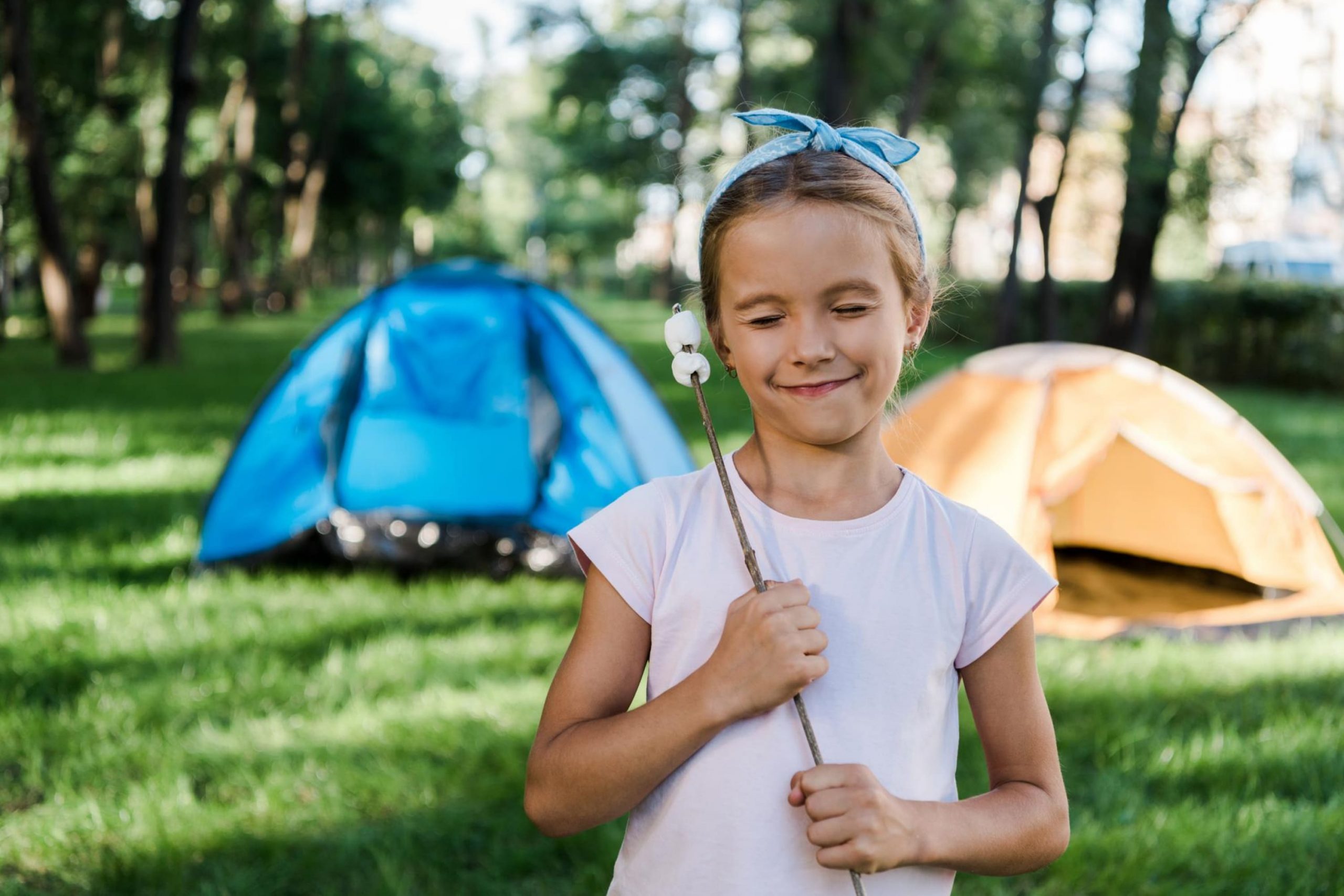
Choose Your Tent Location Smartly
If you are camping without electricity, you need to find a spot for camping very responsibly in order to be able to cool a tent. The area in which you camp will have a major impact on the temperatures you will be dealing with while camping.
For example, it is clear that, if you are camping during the summer months and you set your tent up in a sunny area, it is going to get hot.
This is why choosing the right spot is so important. You might not be aware of it, but setting up a tent in a shaded area can affect the inside temperature by 20 or 30 degrees, maybe even more!
Ideally, you will want to choose a campsite that offers the natural shade of trees or hills. But if you are camping in an area where it’s impossible to find such a spot, you can plan ahead and create your own shade.
For example, you can use your vehicle if you are driving or bring along a tarp or other type of coverage to create shade.
Also, if you are camping near a lake or river, set up your tent nearby to allow breezing air to blow in off of the water.
However, make sure your tent is not too close to the water! In summer, this may result in tons of mosquitoes disturbing you at night!
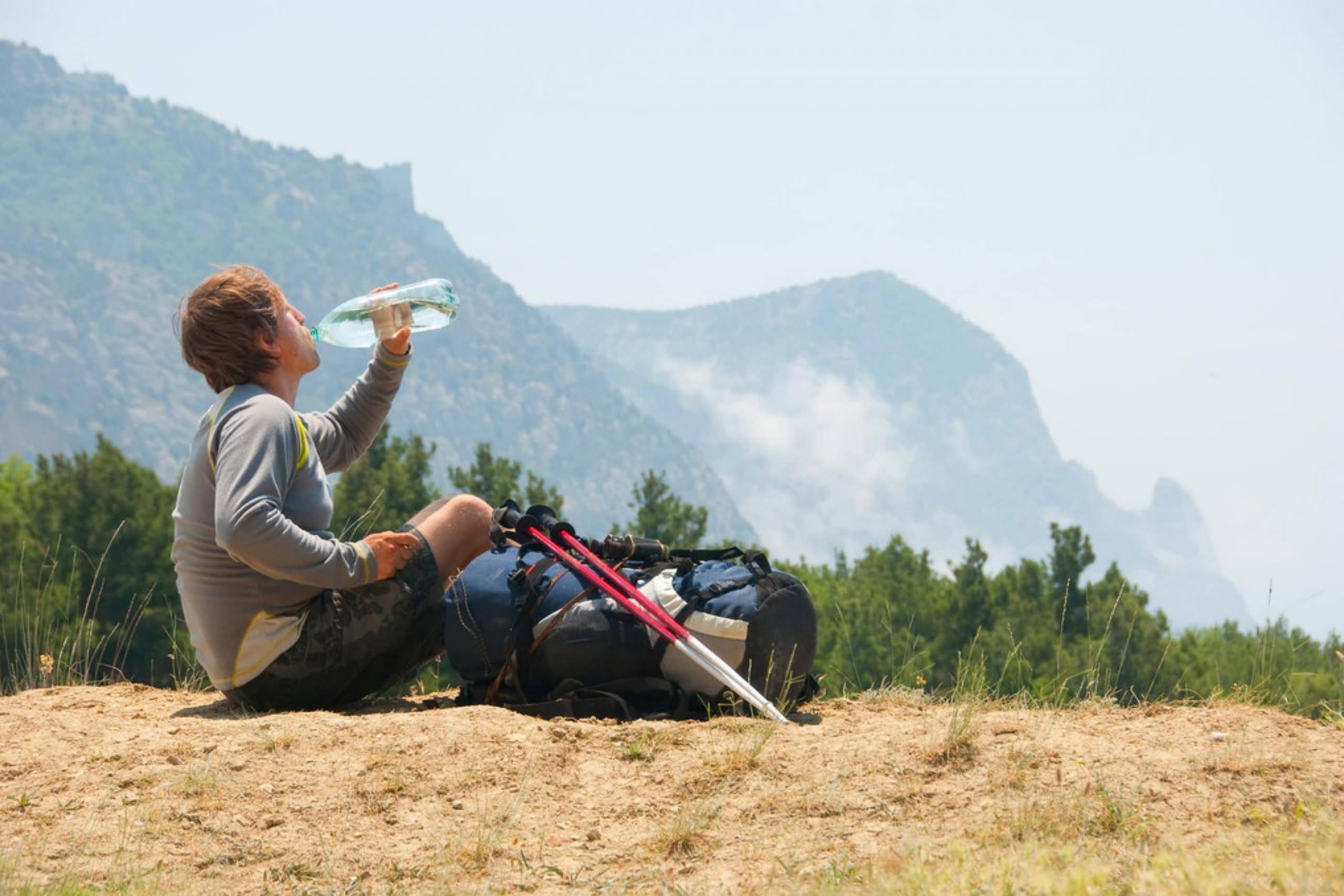
Don’t Rush to Set Up a Tent
It is a huge temptation to set up a tent right after you arrive at your campsite. However, we would not recommend you do that. See, the time when you set up your tent also matters.
When you arrive and set up your tent at once, you allow it to heat up all day!
Of course, by the evening, you will have an unbearably hot tent to sleep in. Instead, wait until later in the day when the sun isn’t as hot.
As long as you can get your tent up and organized in about 30 minutes you can wait until dusk to get started.
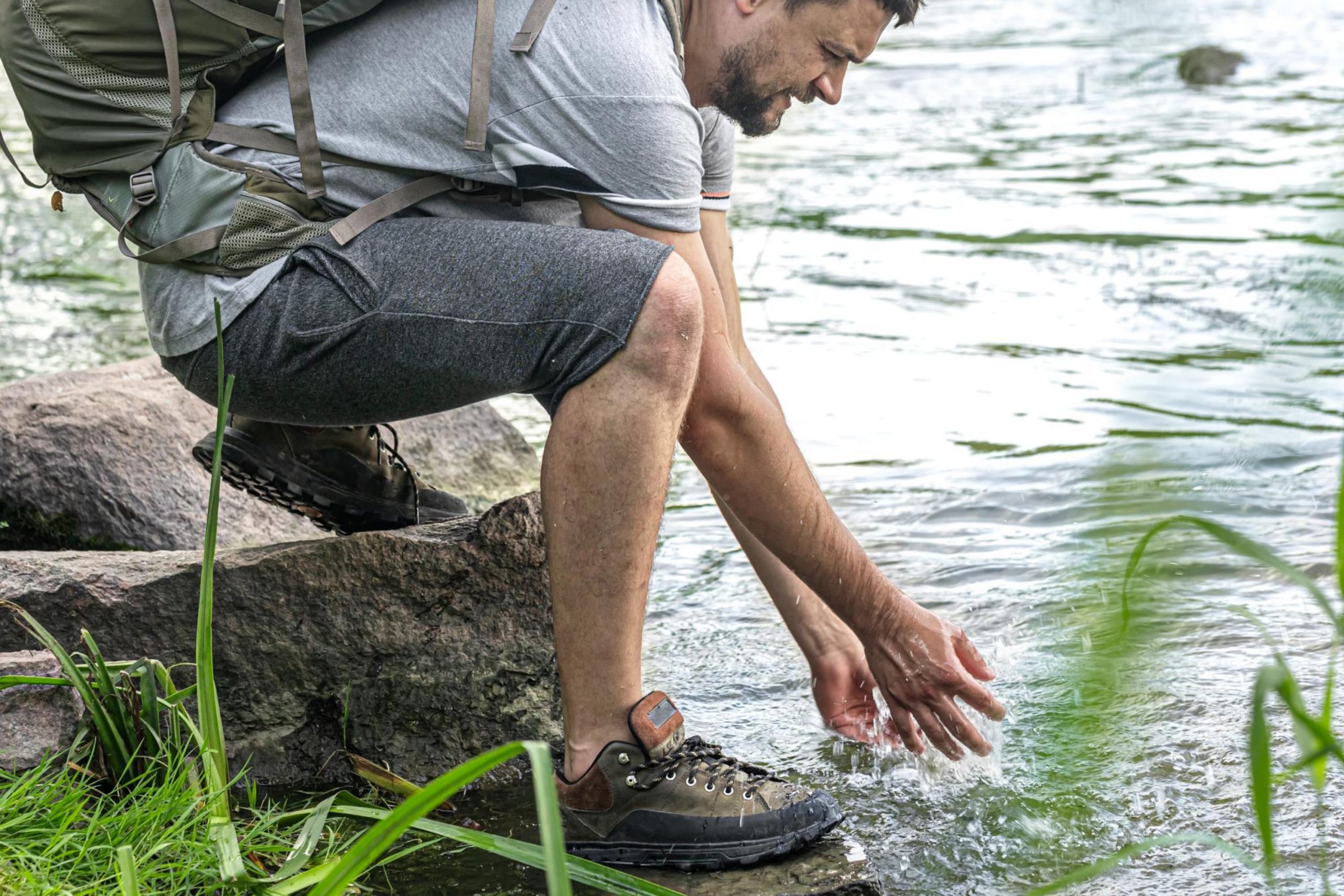
Use Cooling Tools
To keep your tent cool in summer, no electricity cooling tools should not be skipped as well. Below, you can check out a few options to choose from.
They are easy to use, they take little space in a car, and, well, they really work!
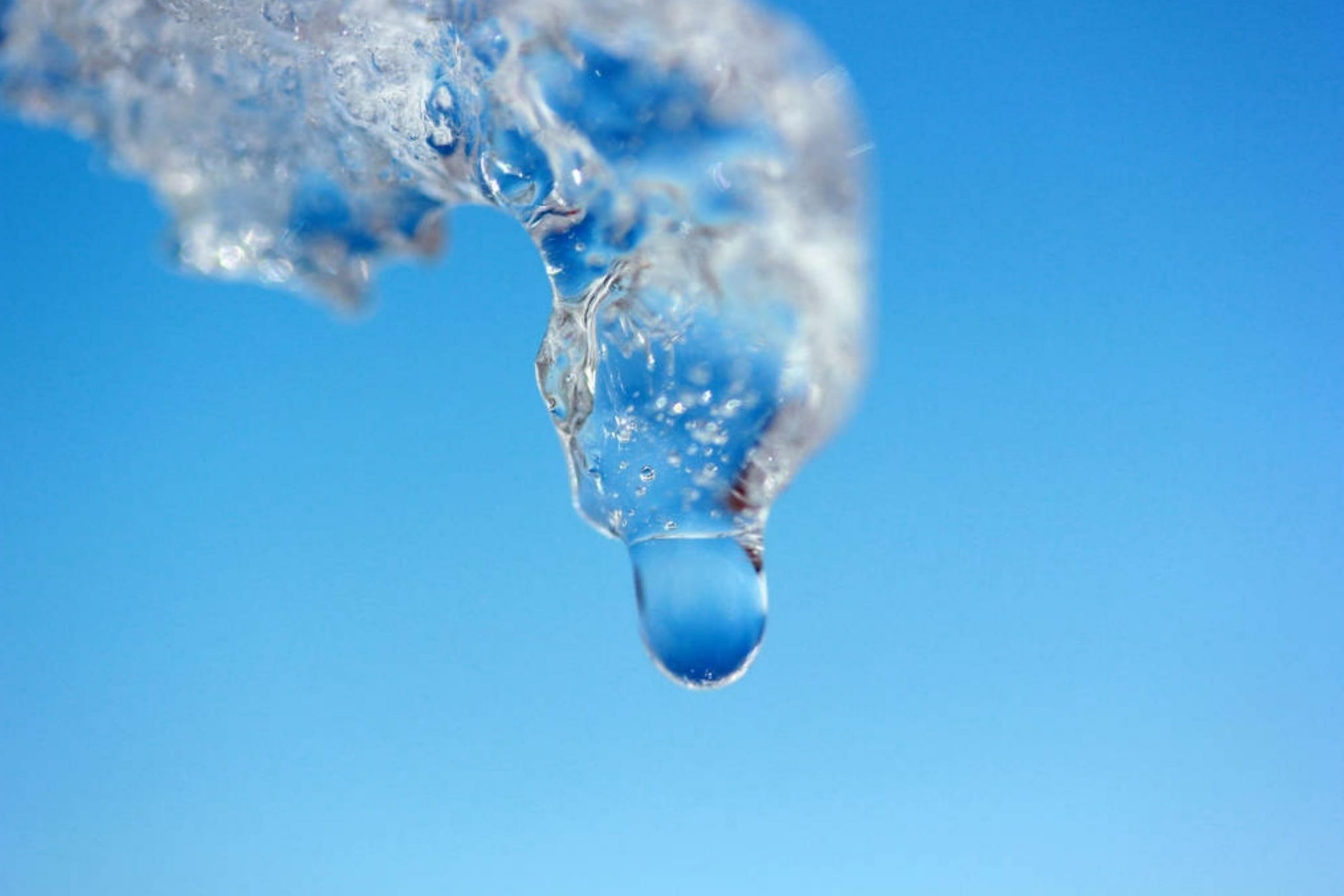
Cooling Blankets
Erect them over your tent to repel heat. These blankets are a great option when camping somewhere with no natural shade and with no electricity sources. And since they usually only cost a few dollars, even if you need several, you still won’t be investing much.
However, make sure that you invest in the higher quality ones! Of course, those will cost a little bit more, but it’s worth that money.
See, the thin versions aren’t going to offer as much protection from the heat and they may tear easily when you are setting them up. Even a moderate breeze can damage them!
Blackout Curtains
You can also add blackout curtains if you want to know how to cool a tent in summer, though most tents have their own built-in zip curtain system. But if your tent doesn’t have a built-in system, and you can’t position your tent completely out of the sun, a blackout curtain can do the job.
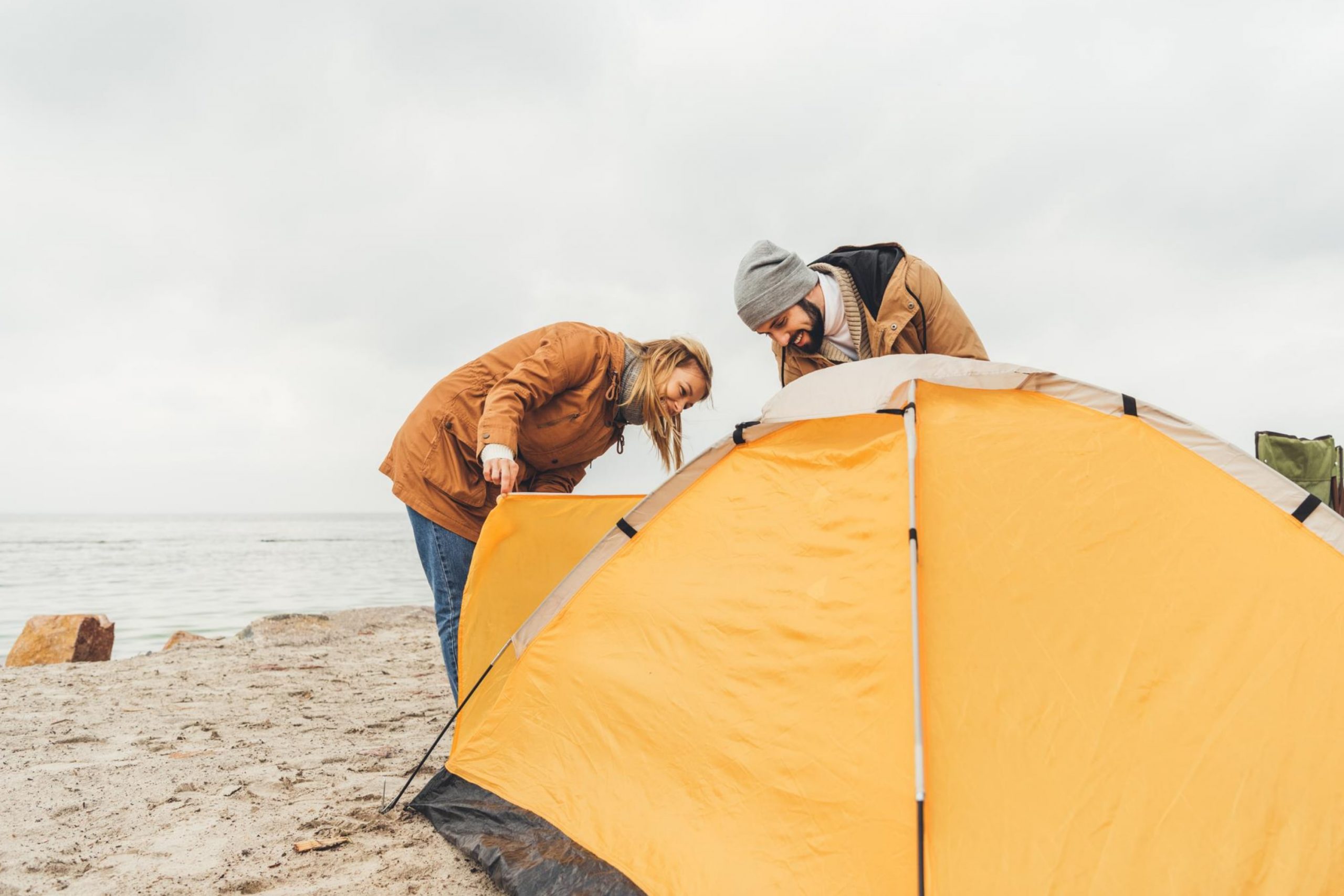
Battery-Powered Fan
If you are headed to a destination that is especially warm, investing in a battery-powered fan could be a good idea. It’s not an all-natural option, but you can operate this fan without electricity.
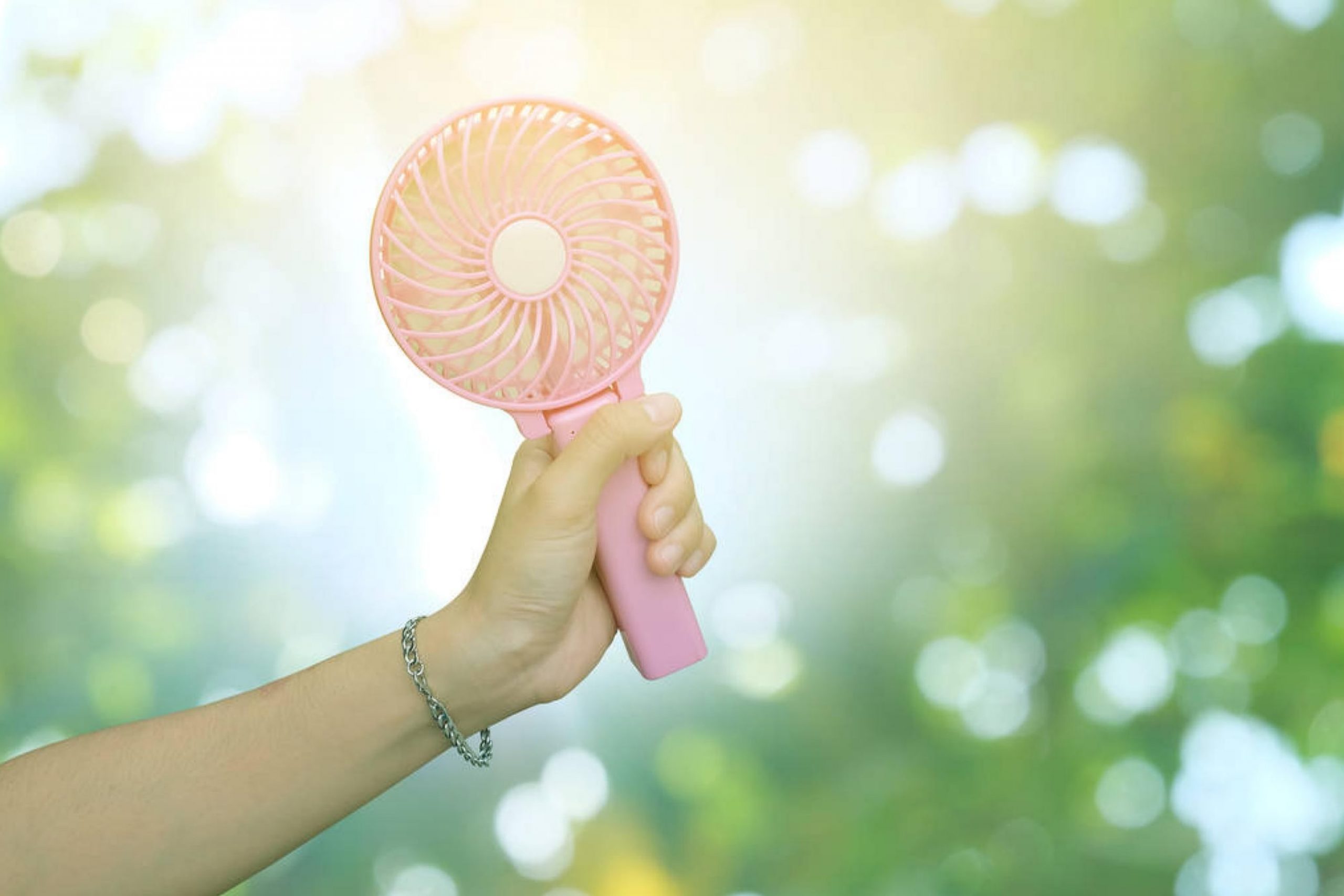
Tarp For Shade
This is another option you can use for cooling your tent for camping. The simplest way to set up a tarp for shade is to string a line from two trees as tight as you need to suspend your tarp. And then you just need to make a few simple actions:
- Create a loop at the end of your rope
- Wrap the loop around the tree
- Feed the rest of the rope through the loop so you have a loop around your tree
- Use the taut-line hitch or the trucker’s hitch to tie the line to the other side
- Drape the tarp over the line
- Use more rope to tie the corners of the tarp to rocks or camp stakes
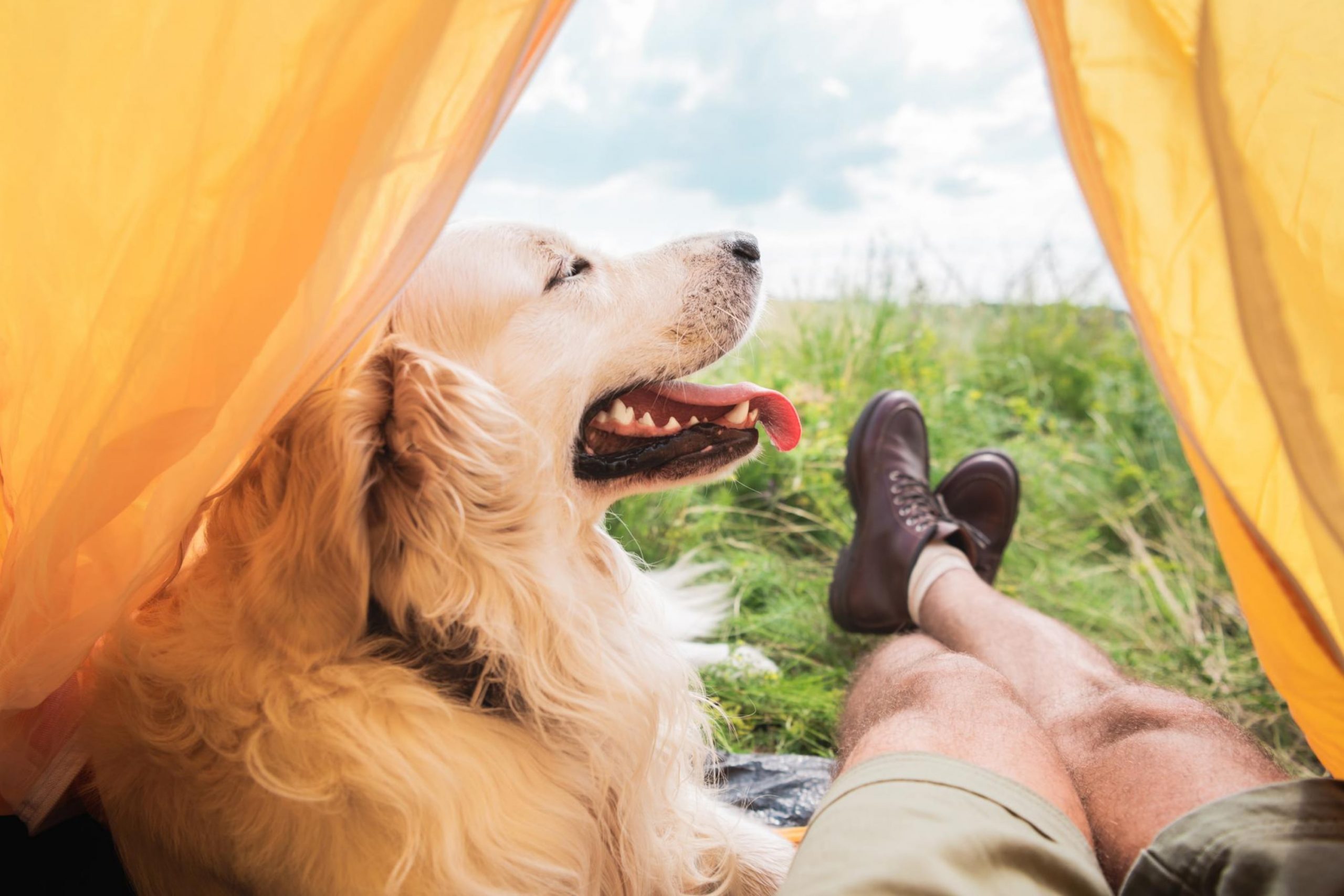
Remove the Rain Fly
One of the easiest ways to make your tent cooler is to make sure you don’t sleep with the rain fly. Since the purpose of the rain fly is to keep water out of your tent, it also keeps the heat in. Another benefit of not using a rain fly is that you get a chance to sleep under the stars.
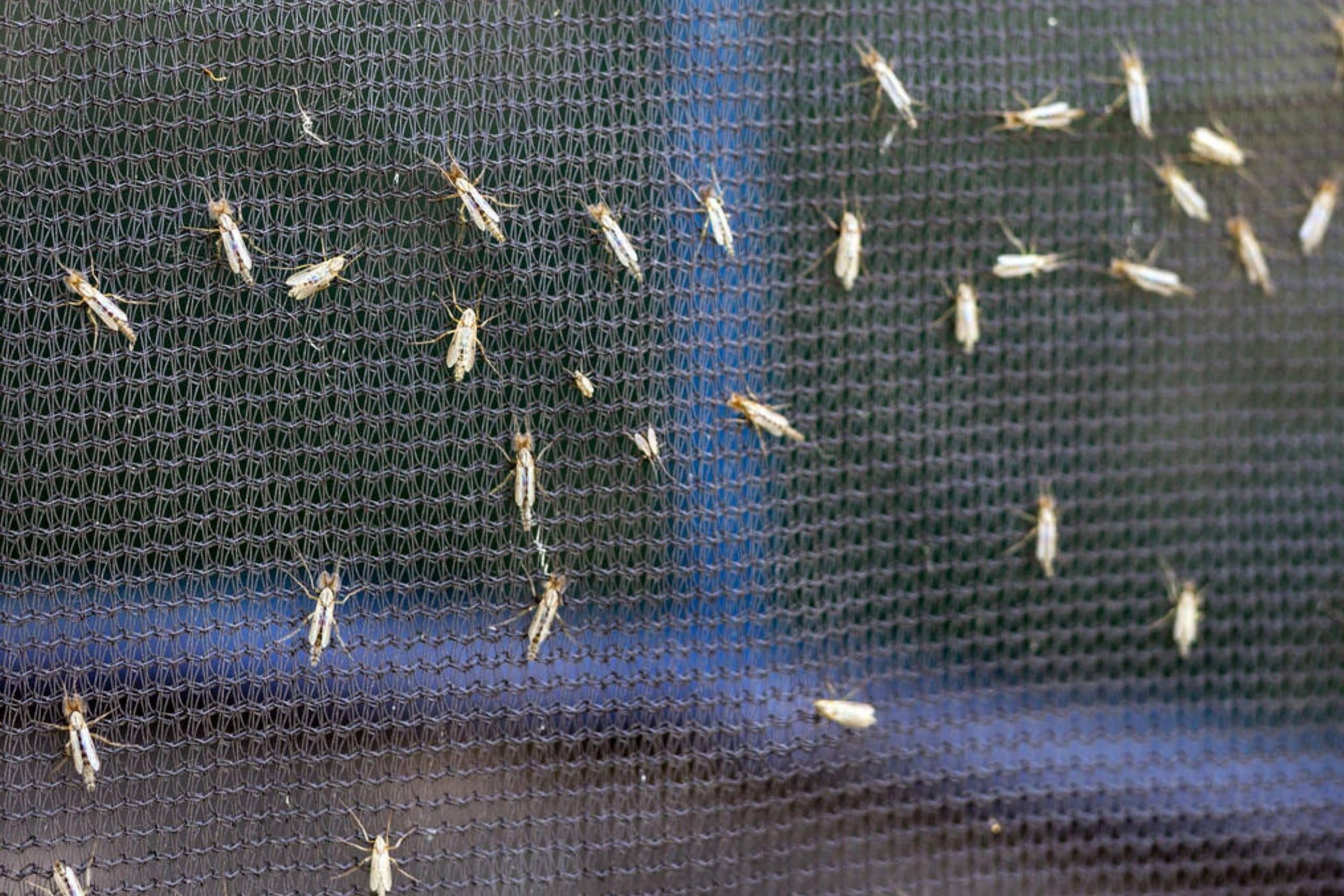
Get a Big Tent!
The shape and design of your tent make a difference in how hot it will get. A larger double-wall tent will have more ventilation due to greater surface area. And it will not retain heat as much as a small tent with less ventilation.
Now you have a few handy options to use should you need to find a way how to keep your tent cool in summer when camping.
All of these suggestions need no electricity which means that you can use them when camping in the wild as well.
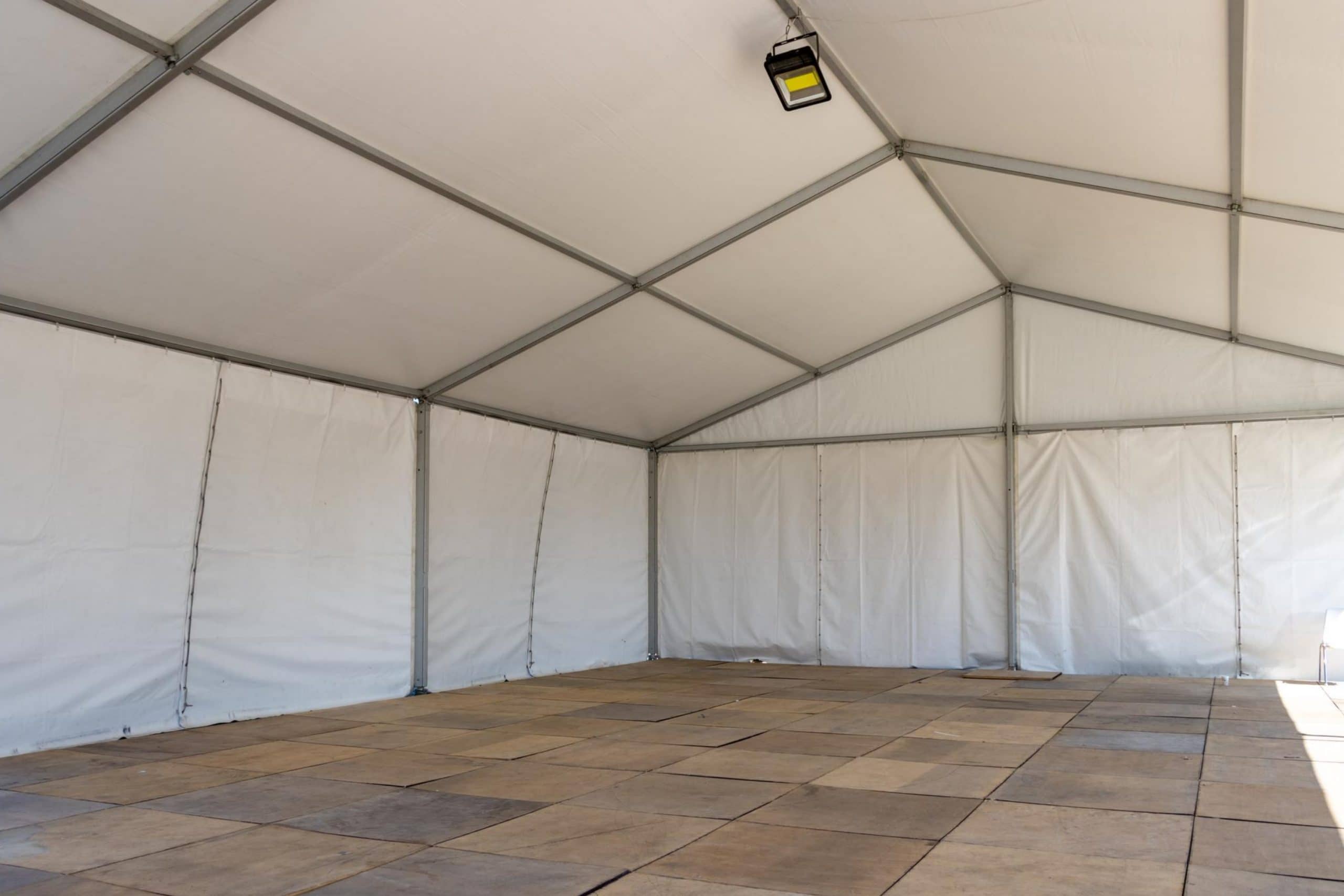
Extra Tips On How You Can Stay Cool When Camping In Summer
It is not only important to keep your tent cool, but you should also be aware of how to cool yourself. Of course, it’s great if your campsite is located by the river or lake, but what if it isn’t?
In this case, we recommend you read on since we have prepared a few alternative ideas for you on how to keep yourself cool in summer if you are staying in a tent.
Find the Campsites With Swimming Holes
Camping in the heat is no joke. This is why, if you are going to one of the state parks, opt for those that have water features like lakes, rivers, springs, etc. Being able to dip your feet in the water or jump in entirely will help you cool down and stay like that longer.
However, you should still be wearing sunscreen if you’re around the water in the heat! That’s because the heat doesn’t feel so oppressive when we’re around the water which means we can get a sunstroke easier.
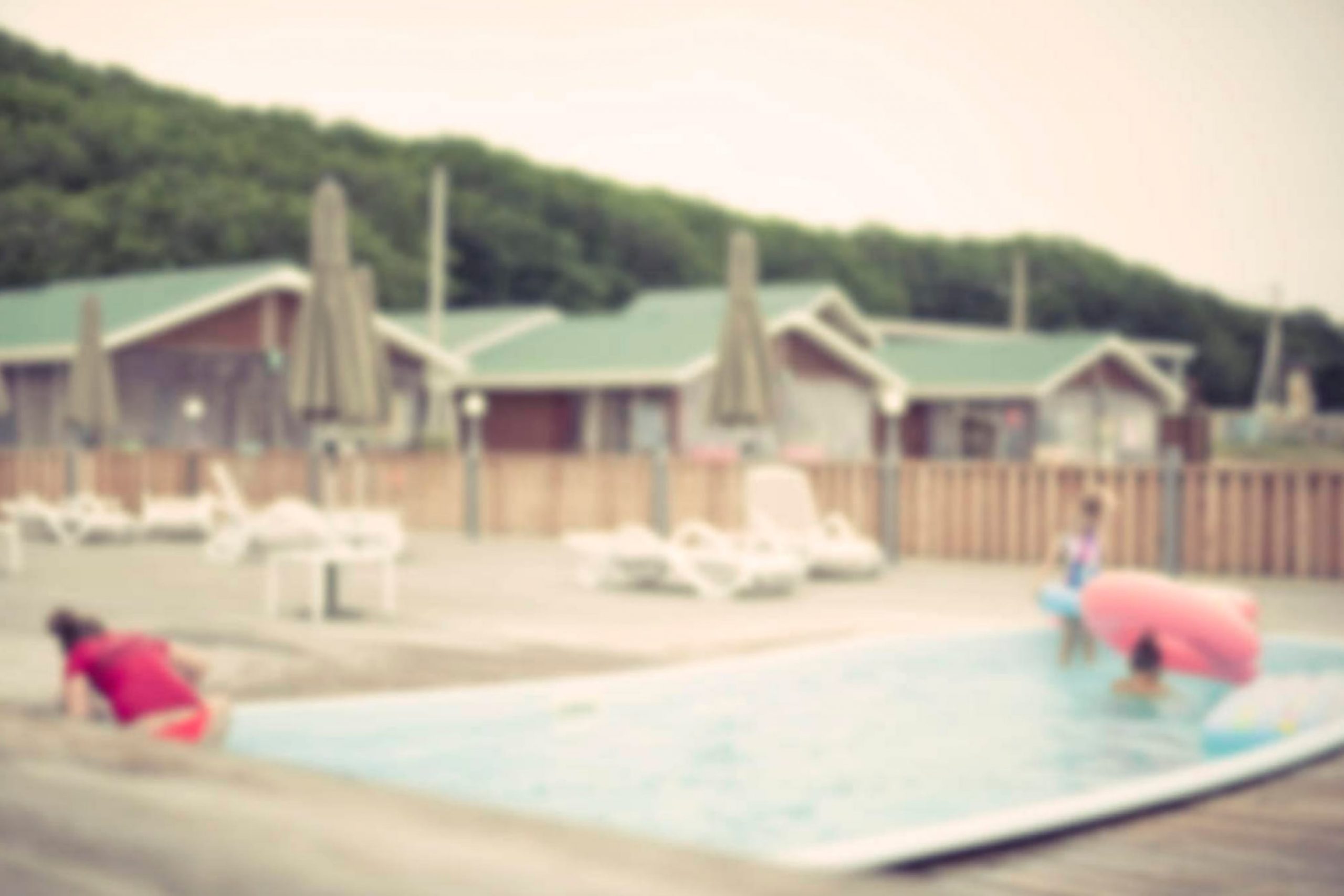
Choose Proper And Suitable Clothing
It is better to use moisture-wicking clothing to help cool you off in hot temperatures. How light the clothing is also important. The lighter and more breathable the fabric, the more moisture can escape.
As for the type of fabric, it doesn’t actually matter much whether you are wearing a cotton t-shirt or a sports t-shirt made of polyester that possesses moisture-wicking abilities.
Some campers report that they feel hotter and sweat more when staying in sports clothing, whilst others say that they start feeling like they are melting only when they are not exercising. So it all depends on you and the specifics of your body.
Also, make sure that you are wearing a base layer (even though it might sound crazy for those who are going to camp in summer!).
However, note that the moisture-wicking properties of a base layer, in this case, made a big difference in the skin temperature. If you want some more comfort while camping in hot weather, try a thin-base layer!
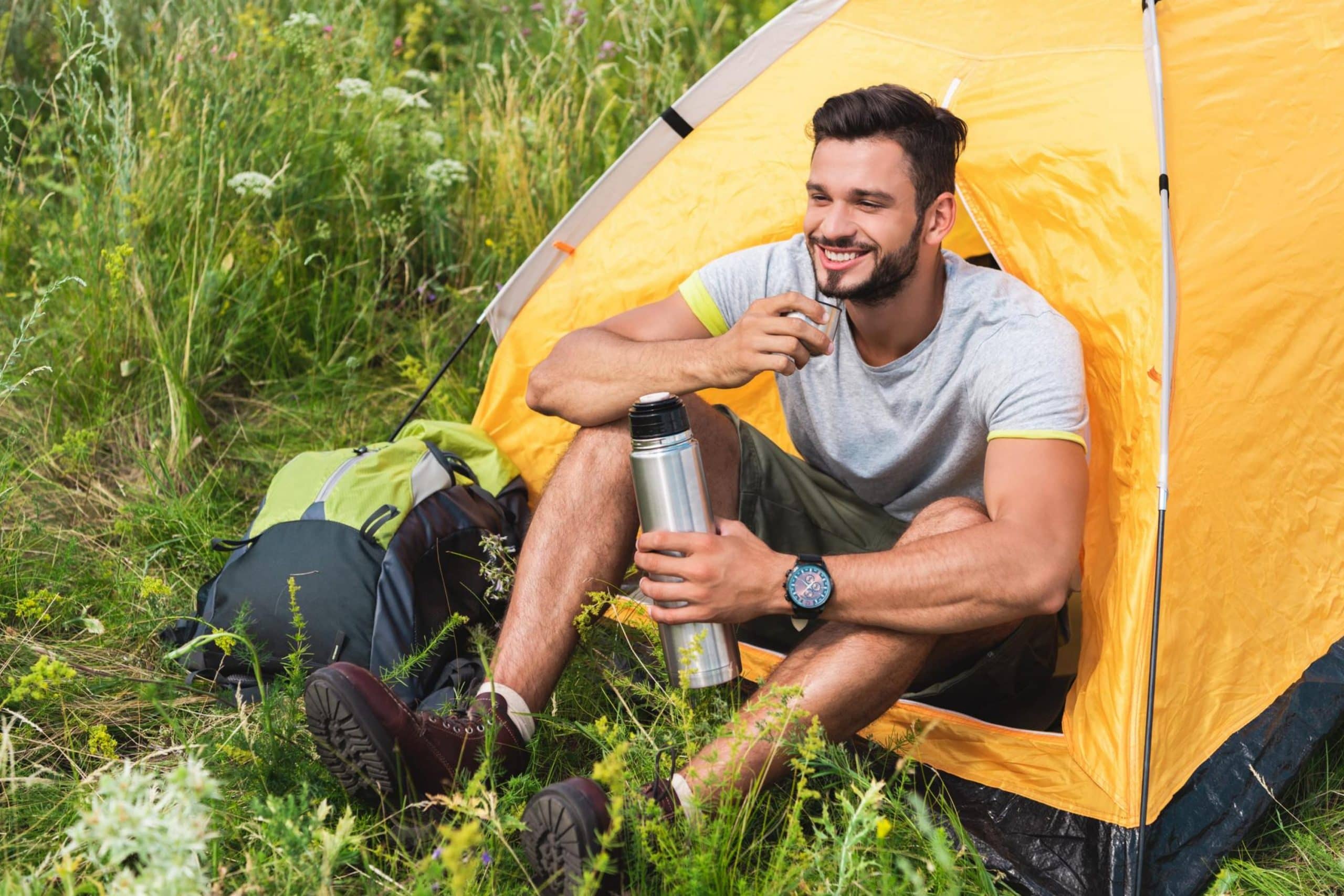
Make a Breeze With a Hand Fan
Sitting right in front of a fan cools you down. However, it’s not always possible to bring a fan with you to the camp. Instead, you can use a hand fan. They use batteries to work so you will not need a source of electricity. And in addition, since hand fans are rather small and portable, you can take one with you should you decide to go hiking.

Opt For Cooling Towels
Cooling towels can become another handy option for cooling yourself. They won’t protect you from summer heat completely, however, they can make it easier to cope with high temperatures while you are staying outside.
With these tips, keeping yourself cool will be even easier for you if you decide to spend a few days in a camp in the wild.
Which Tents Should I Avoid When Camping In Hot Weather?
You might not be aware of it but the type of tent you are using also plays an important role in how hot it is inside. We decided to explain which types of tents should be avoided if you want to camp with as much comfort and convenience as possible.
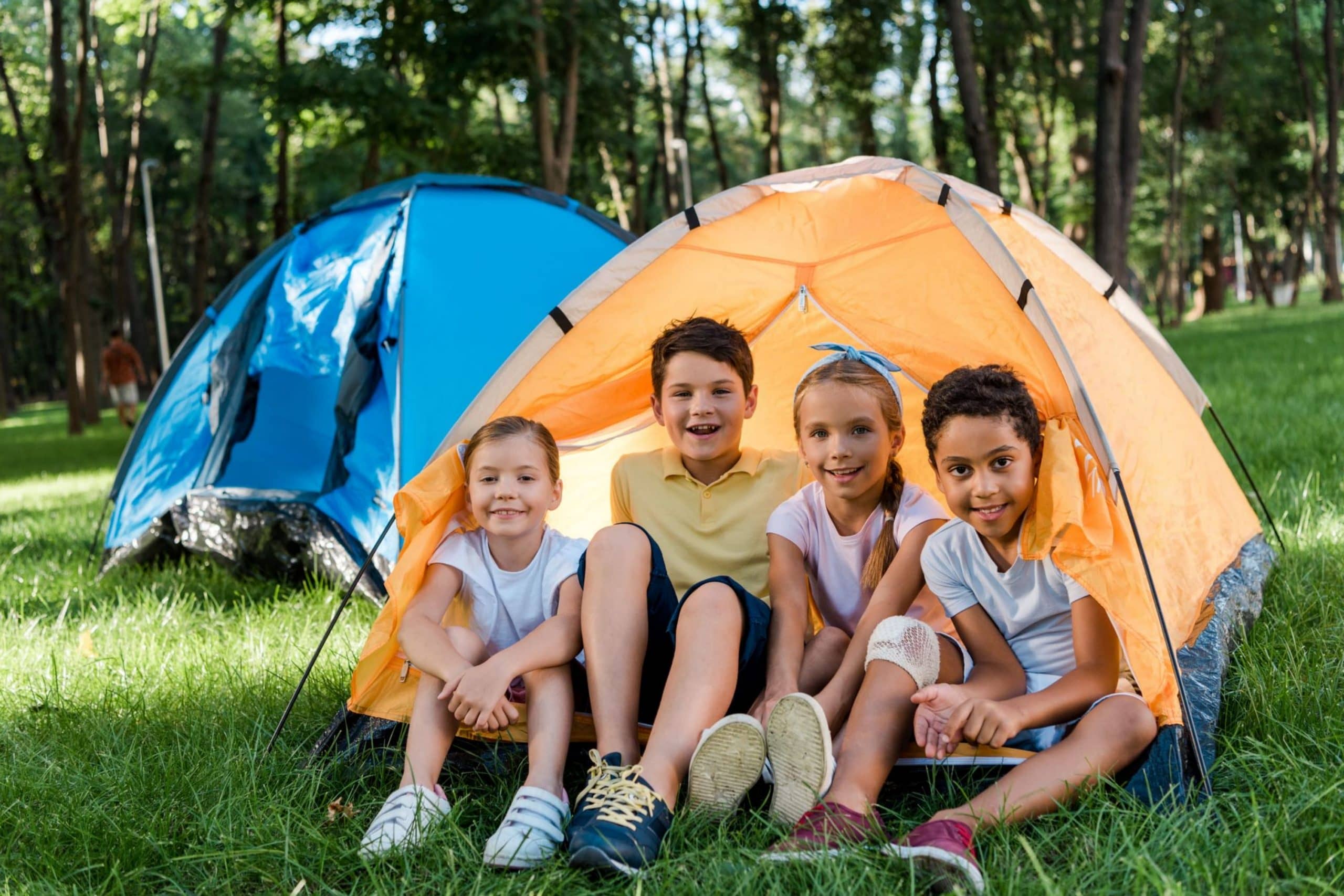
Say No to Single-Wall Tents!
When you’re looking at smaller tents (6-person or smaller), you should never get a single-wall tent! The walls of this type of tent are made of nylon or polyester, as well as the ceiling.
Also, even though these tents are not always made for rainy weather, but some of them are, which means that the tent will not be breathable.
Instead, your tent should be a double-wall tent. That means it can be used with or without the rain fly. Even with a rain fly attached, such a tent will have better ventilation than a single-wall alternative.
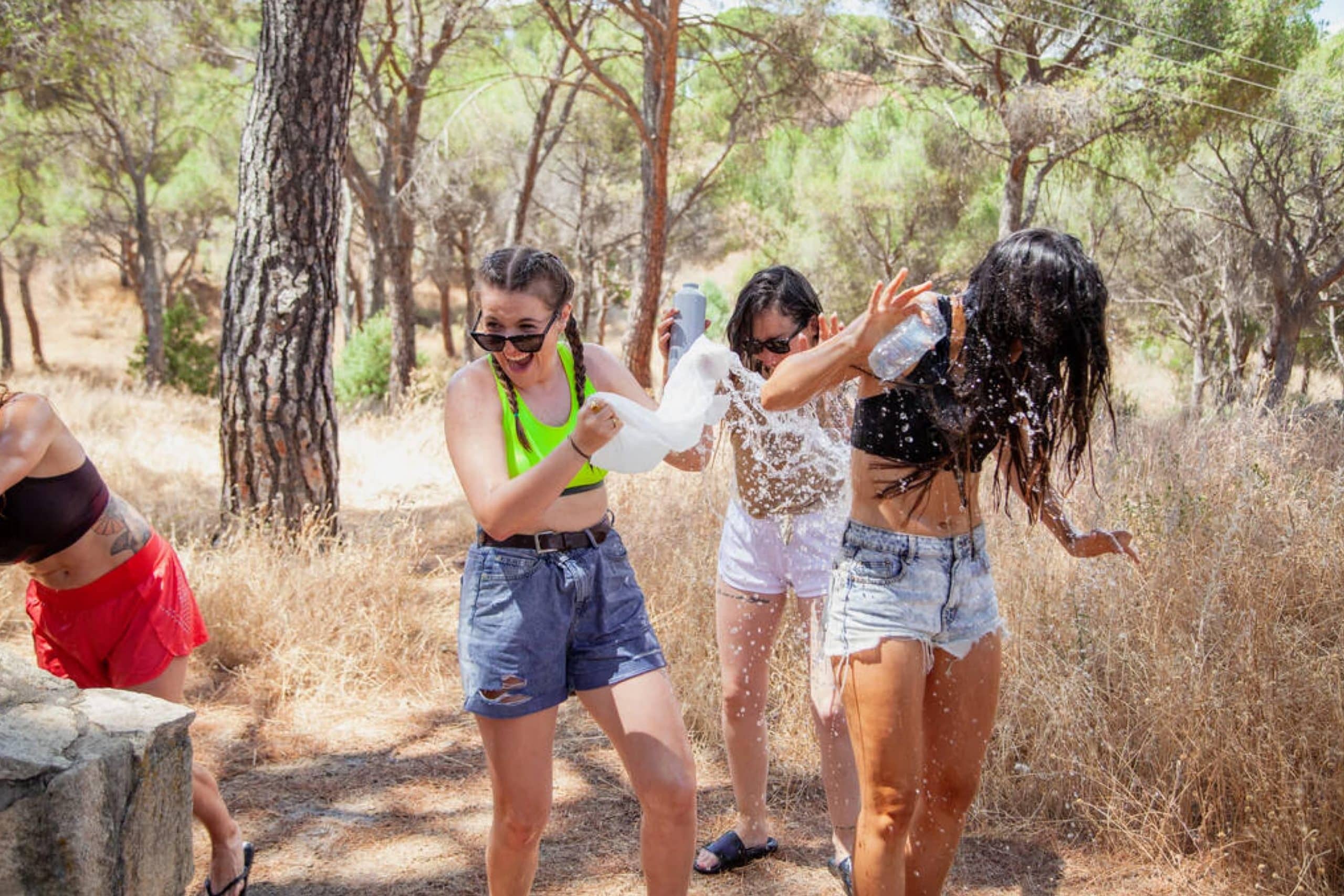
Avoid Using 4-Season Tents
A 4-season tent is specifically made for camping in the winter. Because of this, the fabric of the tent is thicker, thus providing better wind protection.
However, this is also the reason why the ventilation is not as strong to prevent cold air from coming into the tent. You will save a lot of money by only choosing 3-season tents, anyway.
So, now you are fully aware of all the nuances regarding how to keep your camping tent cool in summer.
With our guide and the tips we gave you, it will be possible even for a rookie camper to choose a tent and adjust it so that you feel comfy and cool inside.
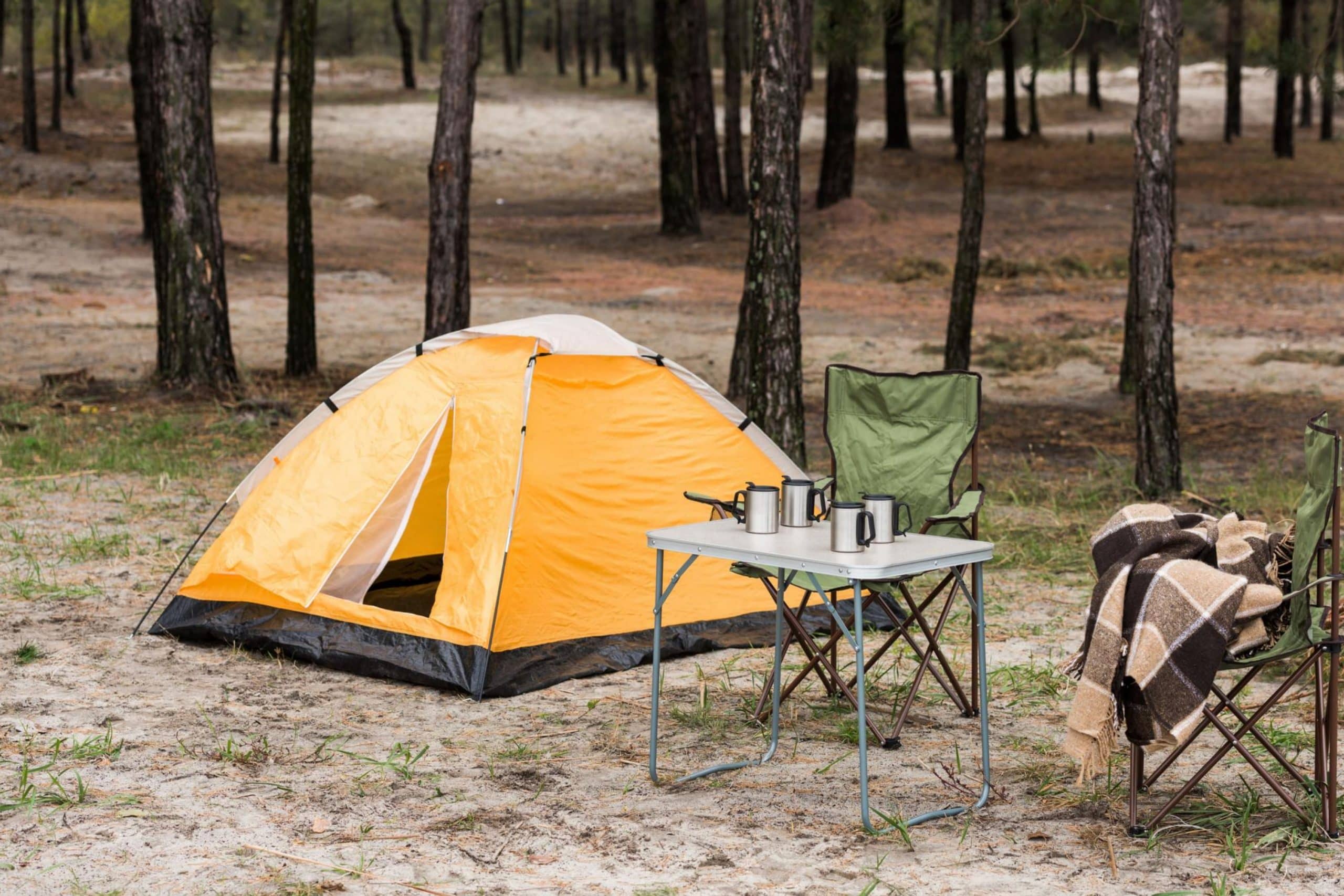
[wp-faq-schema title=”Frequently Asked Questions”]
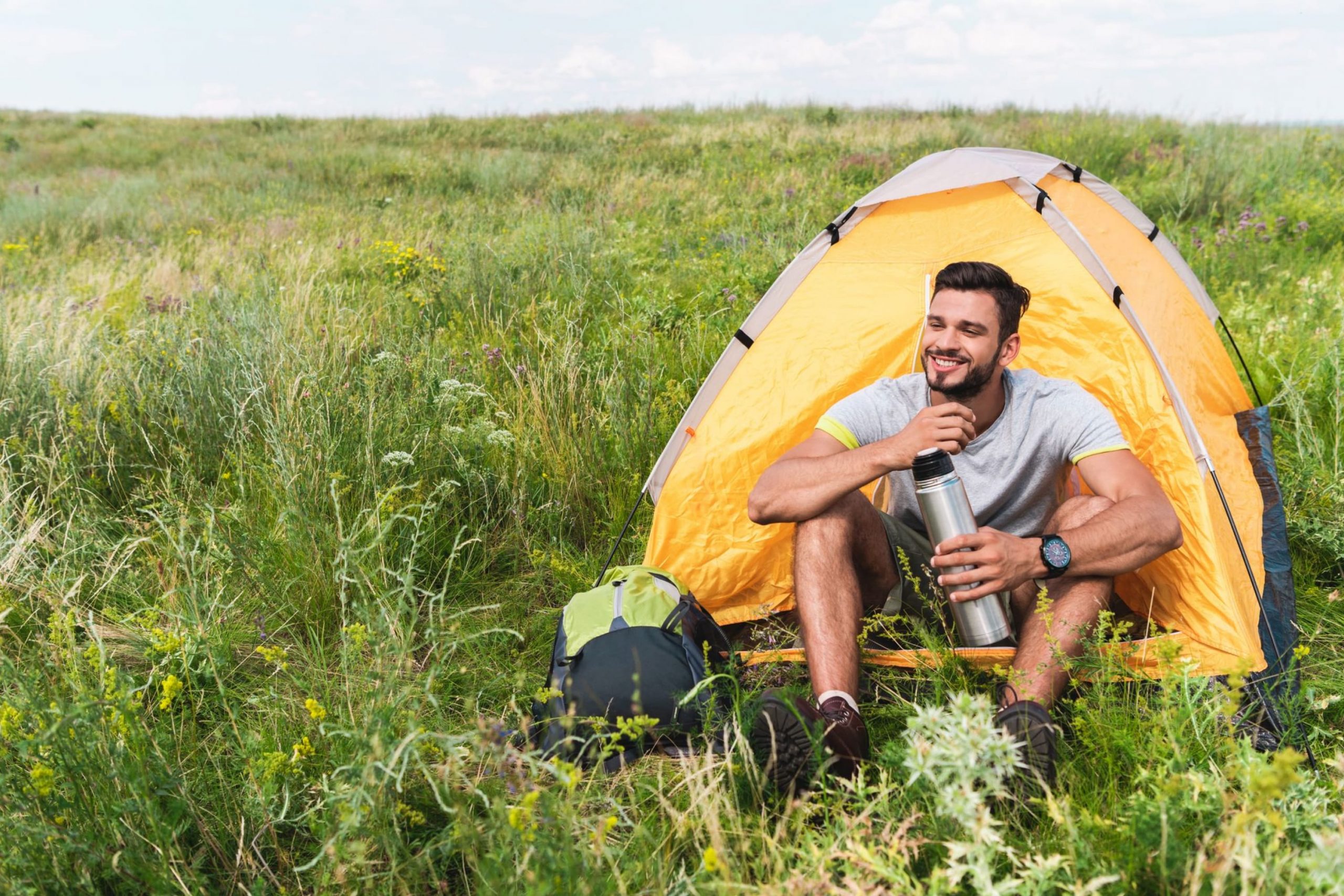
Hey folks! Are there any pro campers here? I need your help. Is it better to wear tight or loose clothes when camping in summer? What’s your experience? I’m going to a campsite for 10 days for the first time, so I’d like to be fully prepared! Thanks!
Hey there, camping bro! See, for me personally, lightweight and loose clothes made of natural fibers (e.g. cotton or thin linen) is better than tight sports clothing, for example. Even though those tight garments are moisture-wicking. I don’t know why it is so, maybe it’s just my body that works this way.
I tell you what: put on something lightweight and bring a couple of moisture-wicking tight things with you. It’s easy to change when you’re staying at a campsite. But like that, you will better understand which type of clothes suits you.
Is it worth trying to use hammock when camping if it’s too hot outside? I love hammocks and we have two at home, but using it instead of a tent to sleep…I’m not sure, to be honest. What do you think?
If you are camping in sub-65 or sub-60-degree Fahrenheit weather, you might run into an issue of having a so-called Cold Butt Syndrom. It’s when your butt gets cold while sleeping in a hammock due to the wind. But if the temperature is going to be higher, I think it’s ok to try. At least, you can bring a tent and a hammock with you.
What to eat when camping without electricity? I’m going to stay on the campsite for a week or so, and there will be no electricity. I know that fishing is not an option since it’s forbidden on the territory where I’ll be staying. So what’s then?
Well, I guess you can take something easy to cook with you that doesn’t actually require complicated cooking. E.g. oatmeal, eggs that can be boiled, pasta, other dry pantry staples like beans or crackers. Canned food is also a good option to make your diet more varied.
When going for camping without electricity, what’s the list of things I need to bring with me? Can anyone share a more or less complete one please? All that I could find for now doesn’t sound too finished.
Well, I can think of a tent, some canned food, battery charger with plug-in to vehicle power outlet, rope (to hang a lantern), 2 or more large flashlights, a camp stove, warm clothes, personal hand or foot warmers…Maybe I forgot something but I’m not an experienced camper.
Hey everyone! Thanks guys for this absolutely handy article! It helped my clarify a few things I was not sure about. Maybe you could also share some camping without electricity hacks for newbies? What to do, what not to do? And so on. Thanks!
Well, I can’t call myself a super experienced camper, but I’d recommend you always have what I call a “camper kit”: powerbanks, canned food, warm clothes, rope and lantern, flashlight, hand or foot warmers.
For those who want to go camping without electricity for a few days or longer, is there any checklist of things that should be taken into consideration?
I guess there is a checklist anyway! You should have some must-have things with you if you’re going into the wild with no electricity for sure! But I personally have no idea of what you should bring with you. I’m not a camper, I prefer comfort and coziness so I’d rather stay in a hotel.